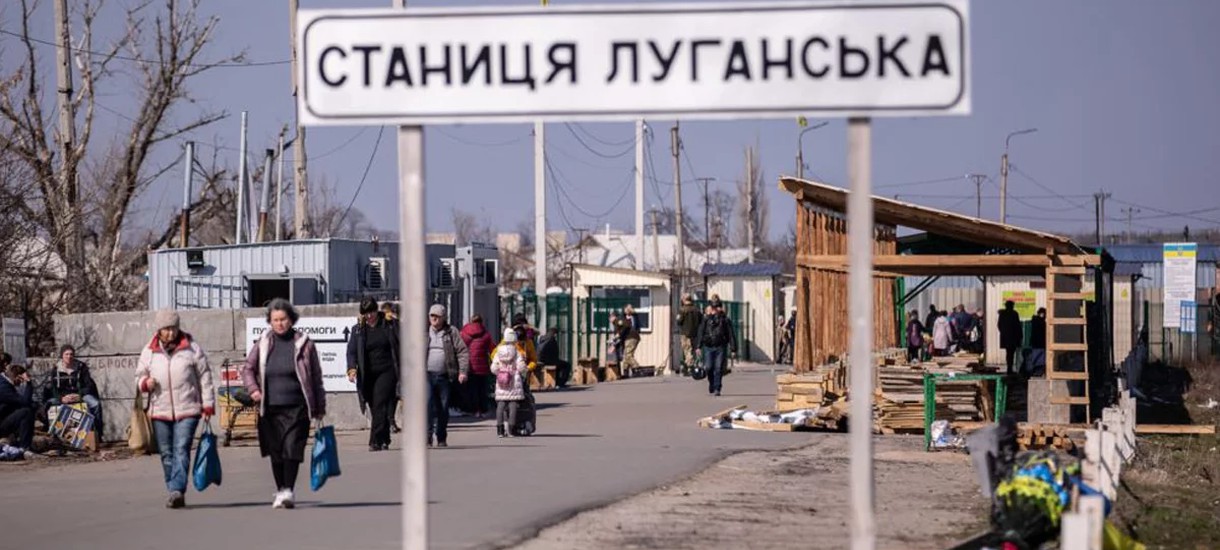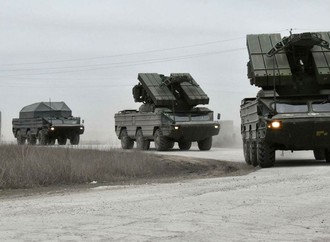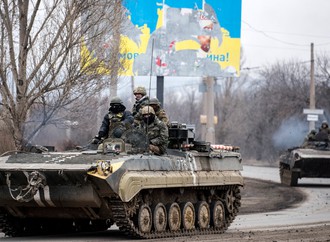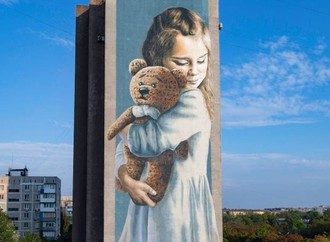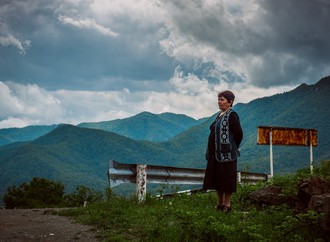The war in eastern Ukraine is now in its sixth year. As the war has entered a “slower”, but no less deadly phase, attention, particularly in the west, has dropped off. Contributors to openDemocracy have sought to draw attention to a range of issues which tend to go unreported - activists trying to bridge the divide between Russia and Ukraine, issues around sexual violence and impunity, the fight for compensation for lost and damaged property, or the debate on the role of female soldiers.
As part of our commitment to reporting on the war in eastern Ukraine, we translate and publish the following interview with Nina Potarska, social researcher and activist, as well as coordinator of the International Women’s League for Peace and Freedom (WILPF) in Ukraine.
Speaking to Oksana Dutchak and Taras Bilous for Ukrainian journal Commons, Nina Potarska talks here about inclusive peace and the possibility of dialogue between people on both sides of the demarcation line between Kyiv- and non-Kyiv governed areas.
Tell us what you have been doing in Donbas in the past few years.
I’m the link person between the International Women’s League for Peace and Freedom and local organisations. I don’t have a fixed list of tasks: I decide on them, depending on the needs of the group I’m working with at any given time. One of my responsibilities is to find women activists, or just active women or groups and their support. Another one is to monitor the women’s rights situation: social-economic rights and women’s rights in the frontline zone. And my third role is to be an advocate for women both at UN and local level.
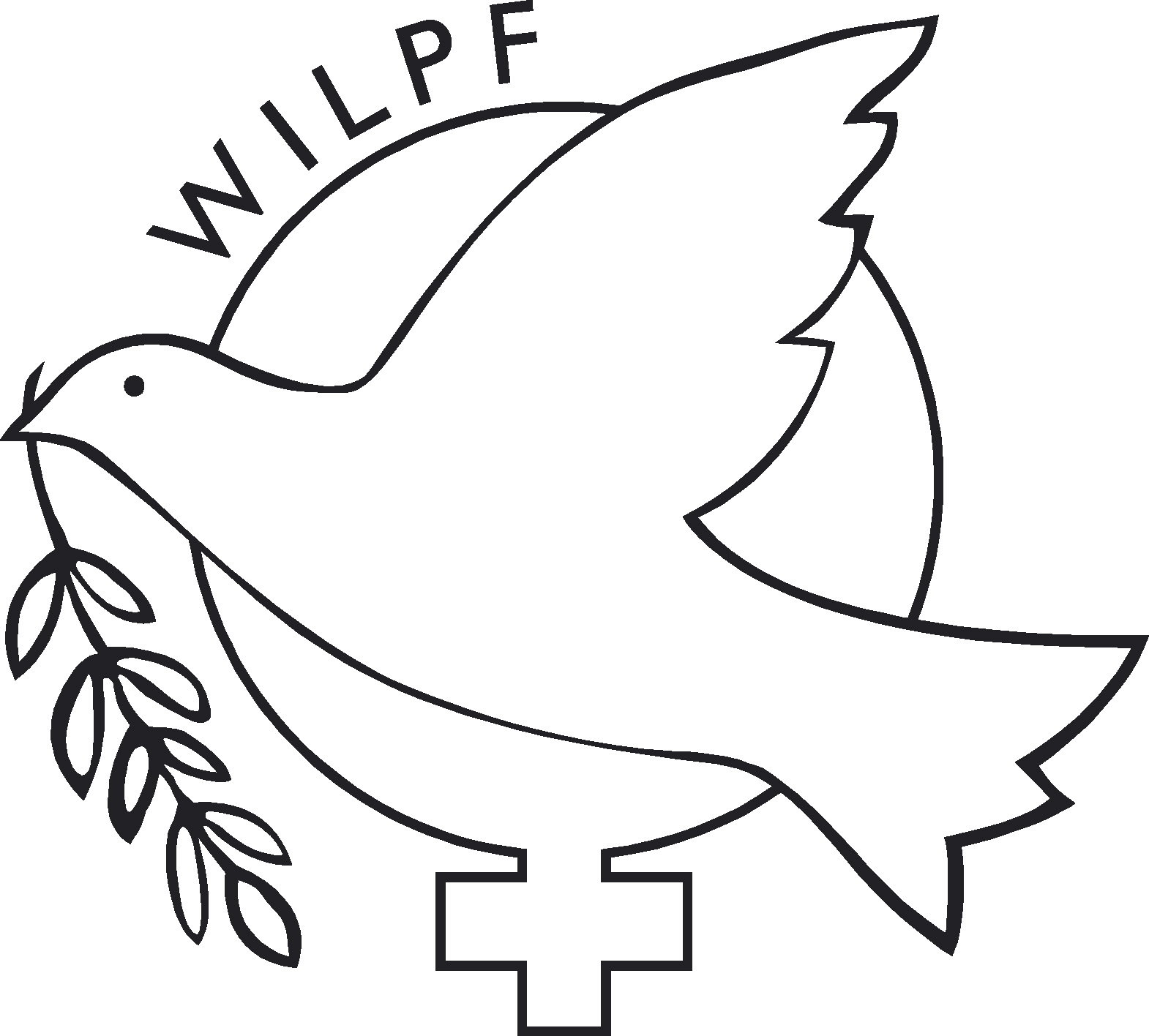
I’m also involved with the Women’s Network for Dialogue and an Inclusive Peace, which has about ten member organisations, mainly in the Donetsk and Luhansk regions. Their initiatives cover a broad spectrum of issues. In Vuhledar, for example, there is an active women’s eco-activist group. And in Volnovakha there is a space where women can get together, make flowers [out of paper, fabric], but also discuss issues of discrimination. This has a good supportive effect. Sometimes it can take very little for an initiative to arise – it could be just a link or a film showing.
When we get women from different regions together, the first thing to do is to define the range of issues they are facing. Of course, 80% of the issues are socio-economic: jobs for women, a lack of social infrastructure, especially in small towns; medical services, children’s nurseries. These are the baseline issues that we can organise our dialogues around.
Not every organisation can afford to send delegates to discussions and debates once or twice a year, so we put papers together and someone from WILPF does a presentation. It saves money. But the presentation might take place at a session where someone from the Ombudsperson’s Office or a government department is present, so they will hear it and receive our comments. When we give a presentation in New York, government people become rather more receptive, listening attentively and writing notes. But it’s difficult to communicate with them here – perhaps their powerful positions get in the way of their listening.
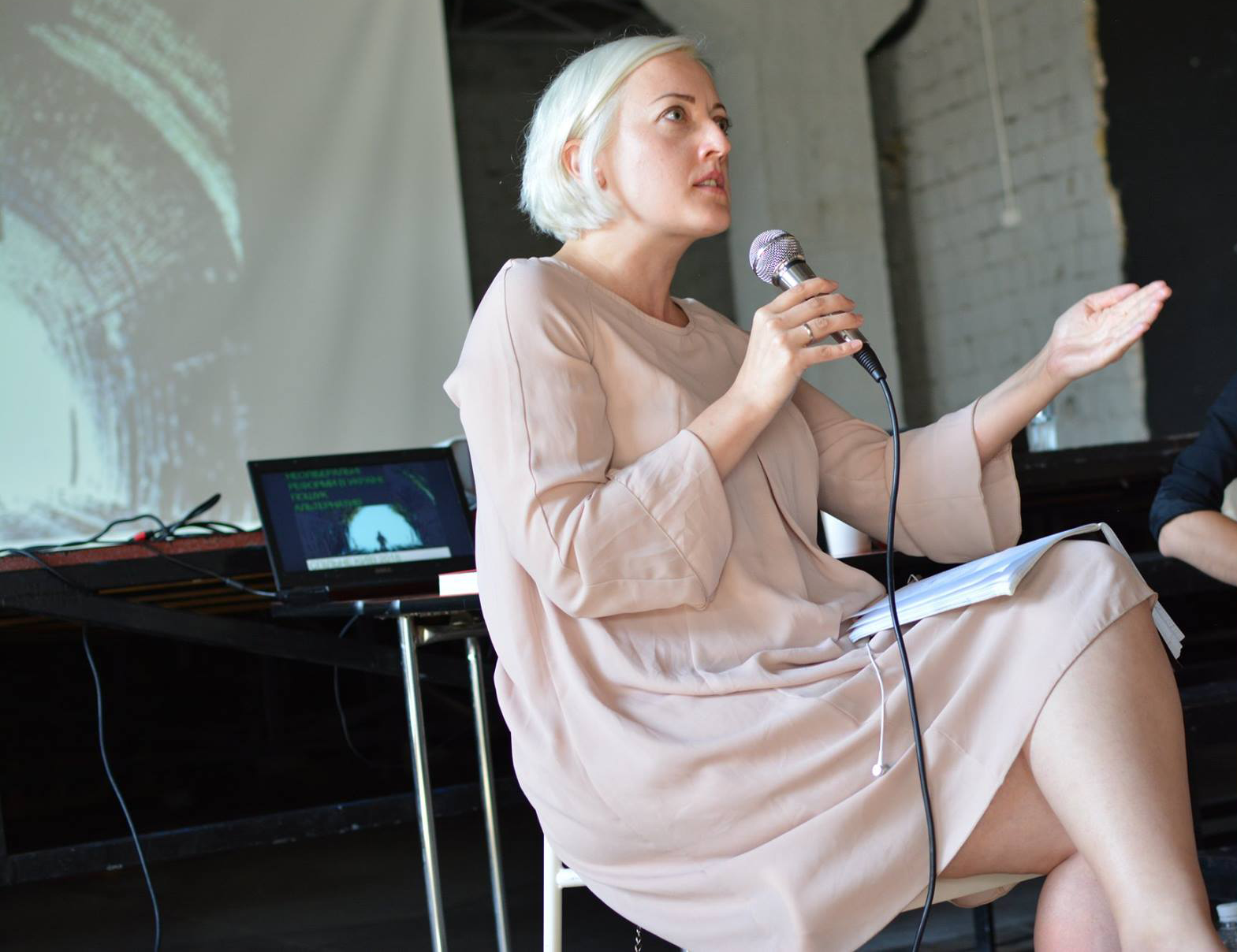
Nina Potarska
Let’s talk about the situation in eastern Ukraine. How are things with civil society there?
Well, if we compare Kyiv and Donbas in general, for example, people in Kyiv have always been more willing to come out on the street to express their views. Eastern Ukraine has a different dynamic: people may have a bone to pick, but they won’t as readily come out with it. That only happens around election times, and it usually only amounts to a bit of petty sabotage or quiet mumblings. When you talk to people in private, you see that many people are discontent about something, but they don’t take to the streets in protest. This might be about fear of the consequences or just lack of experience.
People can air their opinions on controversial issues in private if they trust you. But they don’t discuss these matters in public or get into political discussion, to avoid conflicts. They may not agree with what the media or the government tell them, but they won’t openly disagree.
Issues of trust and security are very important. On the one hand, it would be good for people in the East to express their opinions more often, but, on the other hand they need to learn how to do that in an uncontroversial manner. I encountered this kind of thing in Uzhhorod, where there are several national minorities. They may not agree with things, but they keep their mouths shut and it’s very hard to get them to express an opinion. When we presented our research in Uzhhorod, one member of the audience was a Russian speaker. She came up to me afterwards and said: “You know, this was so unusual. Thank you for making this space.” There is a dominant idea, and other people have to be quiet. We need to give more attention to developing political discussion in different communities.
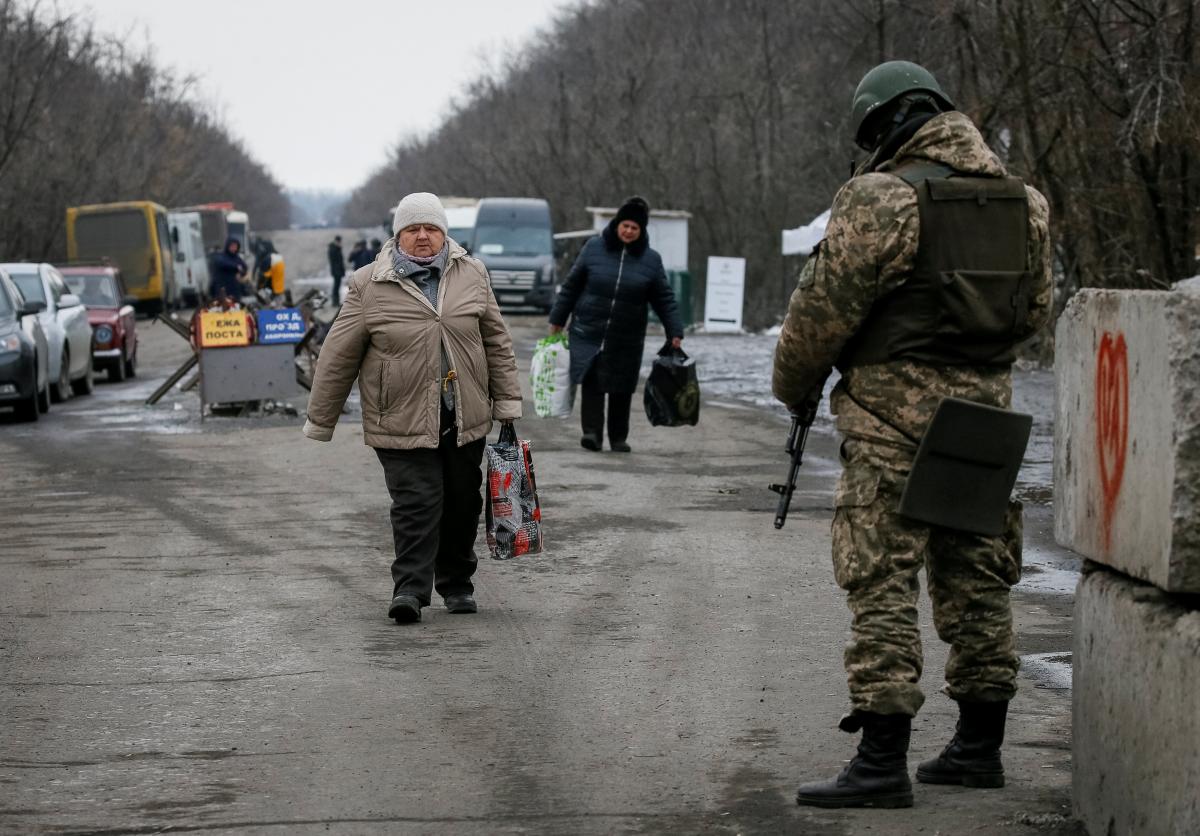
But any discussion is only possible when people feel safe. Can we now express our opinions aloud in every part of our country? I think that there were even greater problems with security in the East in previous years. All the lawlessness around the emergence of big money happened in connection with industrial enterprises. People very often kept their opinions quiet, in order to survive or just to avoid conflicts.
Have you yourself had to resort to self-censorship?
Of course. For example, I often use clips from interviews or other people’s statements, so that I can say “That wasn’t me” if the need arises. Sometimes you have to write a paper or give a lecture in a manner that avoids accusations as far as possible. Over the last five years there have frequently been situations where other people have taken a remark of mine out of context and accuse me of heaven knows what. Even my attempts to stay neutral arouse accusations from all sides: “If you use a neutral tone rather than our rhetoric, it means that you’re for ‘them’.”
How have moods changed since the recent election?
There was a wide spectrum of opinion in our group, but it didn’t turn into a reason for the group to fall apart or rows. It wasn’t our views that were important in our communications, but the value of each person. Even when two women held obviously opposing views, they tried to relate to one another in a personal way and with empathy, aware of the stress affecting everyone because of the fear before the irremediable. There was a lot of nervousness around the election in general, but these things were more sensitive along the demarcation line than in other parts of Ukraine. The election result was going to either intensify the conflict or, on the contrary, to create a possibility of movement towards reconciliation.
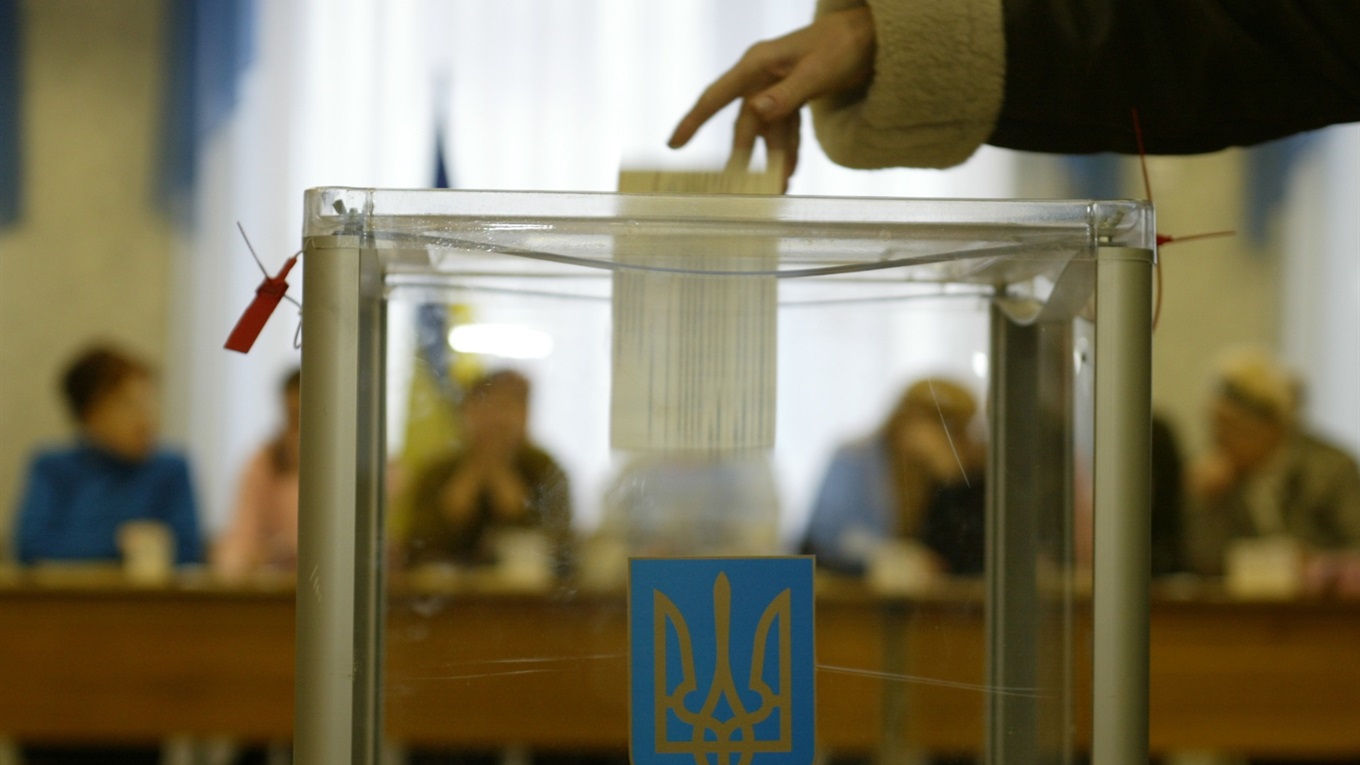
How did this become possible? Many of us have known one another for five years and worked together for a long time. It’s a small group, with a core of 20 or so particularly active members. On the other hand, it is a group of emotionally mature, efficient people schooled in dialogue, mediation and psycho-emotional help. Our planning horizon goes further than elections. We focus on what unites us, so that we can live and work together.
It’s not easy to formulate a message without straying into someone else’s agenda – you either fit into Ukrainian nationalist discourse or the “Russian World”
In general, we’re pretty sceptical about Ukraine’s new government, since we realise that our social sphere is turning into some kind of hell. A month ago a women and her baby died in the city of Avdiivka, for example. There is an internal investigation in progress and a doctor and midwife have been fired. This means that there is no longer any doctor there, and pregnant women have to give birth on the way to the next nearest maternity unit. In other words, medical reform in the East should have worked somewhat differently. There has been a serious drain of medical staff and more logistical problems than in rural areas in other Ukrainian regions. It was probably a bad idea to close down all the GP/minor surgery units. On the contrary, this network should have been expanded, because now people have no way of getting an injection or a consultation. And the result is a steep rise in illness rates.
On the other hand, we can see that the negotiation process has opened a tiny crack which we are actively trying to enter and expand, to expand our opportunities. We are concentrating on places and things where we can make some progress. I and my fellow-activists feel that after this year’s elections there are no longer taboos on certain subjects and we could talk more freely, although there has still been some resistance to this idea. This was very clear, for example in the cities of Kramatorsk and Severodonetsk, not to mention in social media.
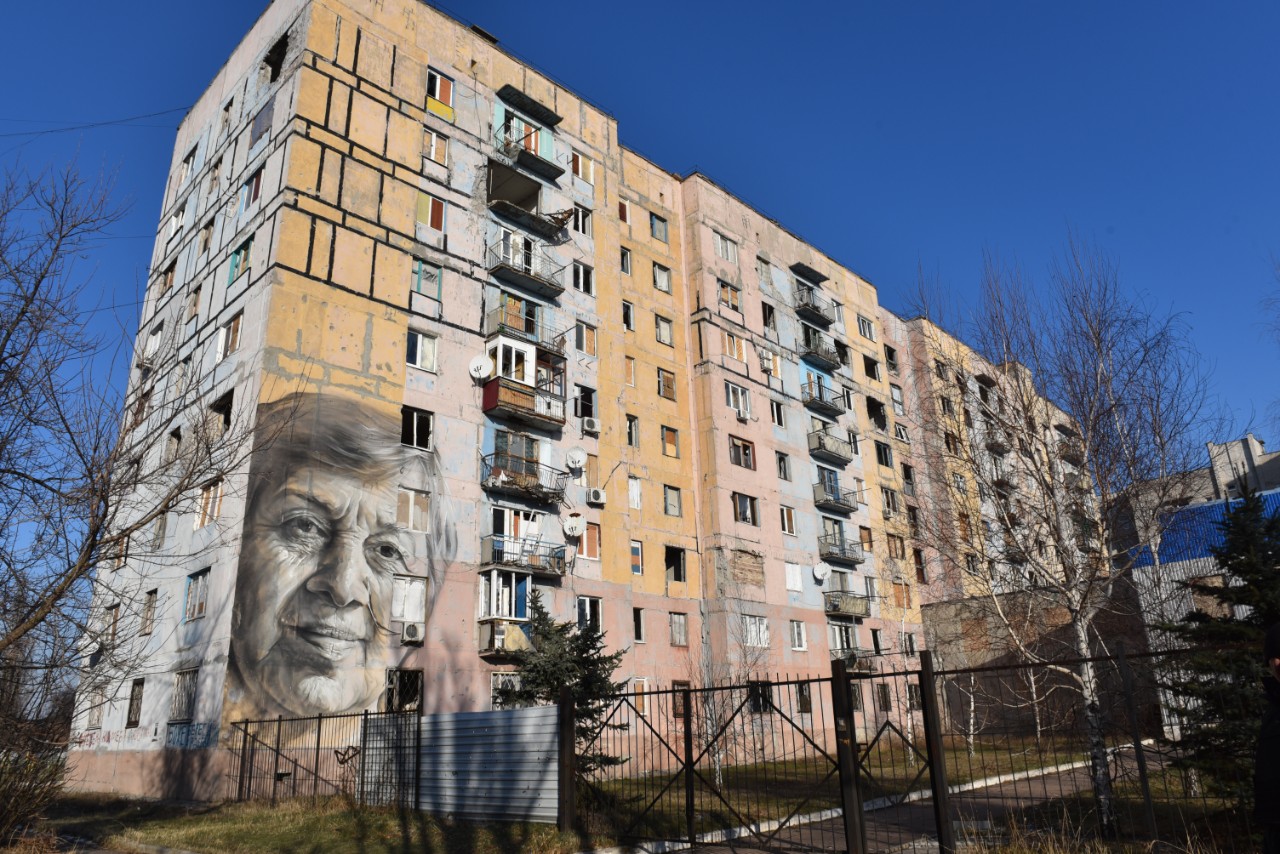
In terms of personal relations, however, there is now much less aggression and negative remarks. But if we make some kind of statement, local activists will refuse to repost it, because it’s not safe for them to do so: people will inevitably start spreading nasty stuff about them. There are a lot of subjects activists from Kramatorsk, for example, can’t touch on, because the legal activist milieu there is national-liberal. So there are some ideas that are better for me to express, or someone from the West of the country.
In 2016-2017, when people started talking about a pullout of government forces, there was a lot of nervousness around the subject, and especially a lack of understanding of the potential consequences. The situation is clear now: we know how often there's shelling and how transport works. We’re used to it all now. But any change in the status quo creates panic. It was very hard to decide whether a pullout would be a good or bad thing. People could live with some of the risks, but didn’t know which they were. The government couldn’t tell them anything, and still can’t, which leaves enormous scope for speculation. The idea of a pullout is also about trust, and how the two sides can negotiate and comply with agreements. We, however, are not talking about pullouts, but about ceasefires. That way, we try to escape from the crude dichotomy of “for” and “against”, and to avoid using words and concepts that label the two sides. Otherwise, we could be putting activists at risk, because mentioning the very possibility in non-government controlled territory is simply deadly dangerous.
In October, you took part in a “Women’s Dialogue without Borders” action on the bridge at Stanitsa Luhanska. How did this idea come about?
It started off as an idea of holding some symbolic action. Back in 2016 a lot of women at our seminars talked about “wanting to go to Minsk to talk openly about the need to abandon the armed conflict and move to a peaceful phase of development”. But since the situation was neither clear or safe, I dissuaded them from involvement in any actions. We didn’t know how to do this properly; we felt that lacked the knowledge, the experience and perhaps even the courage to come out with our demands.
It’s not easy to formulate a message without straying into someone else’s agenda – you either fit into Ukrainian nationalist discourse or the “Russian World”.
In April we held a presentation of our inclusivity in the peacemaking process focus group research, where there was time and space to think and talk about the issue. Then in August we travelled to the Baltic Glory holiday camp, where there were women not just from both sides of the demarcation line but also from Russia, Finland and Sweden. The third day was devoted to personal stories, where each woman was able to talk about why she was there and why she had become involved in the subject of war in general. Some stories were really heavy going. But after this, it became clear who held what position and how we could talk to one another. And on the third or fourth day we in the Ukrainian-Russian delegation group could already begin to formulate some general principles.
Then an idea arose: to hold an action in which women from both sides could be involved. Our group divided into several smaller factions: those who thought that could be dangerous; those who thought that no one would allow it to happen, and those who thought it would be badly received by both sides. In the end we happened on a least risky format – meetings on a two-by-two basis in a buffer zone.
Before that happened, we spent a month phoning round and discussing our list of demands after taking the decision to draw up two identical lists, although there are separate ones as well. We realised that we could only discuss our most important demands. We spent a long time deciding whether to raise the question of a ceasefire, but some women wondered why we were doing that when we weren’t demanding the main thing. And we decided to leave the basic demand: that of security.
There was a discussion around the need to increase the number of checkpoints along the demarcation line, so that people wouldn’t be hanging around for hours and that they would be safe. We also discussed whether we actually wanted the war to be pleasant and safe. On the one hand, this is a basic need for people who have to deal with it on a daily basis; but on the other hand we seem to be wanting to retain some kind of military infrastructure for a war that we’d rather forget. But we still left the checkpoints, because we need an improvement here immediately.
Humanitarian issues are very often resolved in inhuman ways, because decisions are not taken by the people they affect. Over the past year it became clear that toilets were needed at the main checkpoints, and European Commission funding was made available for their provision. And I began to wonder what people did before that: did people just not go to the toilet? And the checkpoint guards – did they not go either? These are quite obvious things to think about. But for some reason it took several years for proper toilets to appear: until then people just crouched in a minefield. And the situation with water taps and shelter from the sun was the same: in 2015-2016 no one had even thought about them. The Red Cross handed out paper hats to the elderly women passing in and out, but that was all.
Ukraine’s military budget is set at the start of the year. It encompasses funding for its armed forces, and strategies have been developed for long term expenditure. But the basic human needs of the civilian population have been seen as a temporary matter. In Northern Cyprus it takes a minute or so to pass through the checkpoint from the Turkish to the Greek-governed part of the island, but there are toilets and shelter from the sun. Their conflict has, of course lasted 30 years, but this kind of infrastructure doesn’t cost a lot.
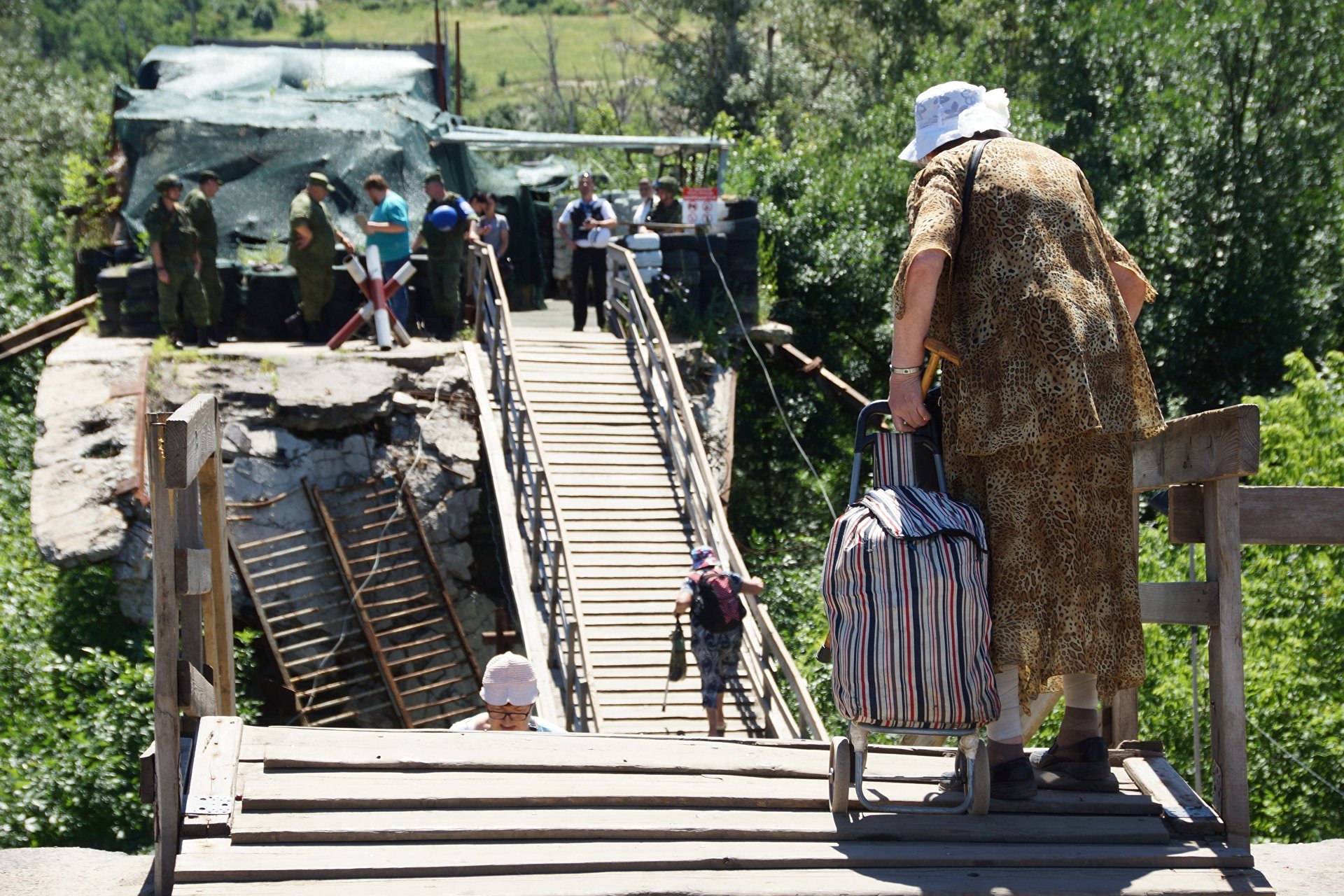
Do women on the non-Kyiv controlled side of the line also have networks like yours?
I met some in 2015 during my trips to the other side. I can’t say that there is a network, but there are women who knew one another and worked in the humanitarian field before the line appeared. Some of them were engaged in helping at medical and palliative care establishments. They hadn’t lost either their skills or their contacts. It wasn’t easy to establish trust with them, but when I travelled to those areas and talked to them I realised that we could continue to discuss issues linked to the war and what we could do about it.
Your petition about moving the conflict into a peaceful stage received an aggressive reaction from many commentators. What do you think about this?
Some of the issues arose out of the trauma they were facing and some others were just irrelevant. I can summarise a couple of the more interesting comments. The point about the number of checkpoints produced the query, “Are you planning to increase the number of contact points with the separatists?” The answer is that this was the Cabinet’s Decision 815 and was passed by the previous government.
Another query concerned the demand for a ceasefire: “Why don’t you address this point to Putin?” But we can immediately reply that our demands are addressed to the Tripartite Contact Group and the OSCE. We deliberately contacted all sides, in order to maintain our neutrality.
Another comment has been, “You are insulting female soldiers with your petitions.” But some female veterans have supported our demands, including the one for a ceasefire.
Lastly, here’s a question relating to Ukraine’s powerful neighbour: “Russia is the aggressor and the only country that can stop the war”. If you look at OSCE reports, however, you can see that both sides are engaged in armed conflict, and technically, they both need to lay down their arms.
In general, each person pours their traumas and problems into their criticism of our initiative, instead of what was actually written. It’s sad that before looking at each of these points, people just respond with nastiness and accusations in our direction.
For the moment, everything is moving towards de-escalation. Even at the level of official Ukrainian rhetoric. I feel we’re having conversations now that we never had before, even amongst human rights defenderes
Why is a ceasefire and a move of the conflict into a peaceful phase an issue? Can we not hold negotiations? Is a ceasefire bad – do we need more fighting? No one is asking anyone to yield their ground. We’re not even talking about the fact that we want peace. Because the word “peace” is taboo, because as soon as you say it people start throwing stones at you. We deliberately avoid the word during our discussions, and talk instead about security and dialogue – although dialogue can be tricky as well.
Nevertheless, our petition is actively attracting signatures. If I’m being honest, I don’t even know who these people are. The interesting thing for me is seeing how the number will grow over a month, perhaps, without any deliberate promotion. People are also often afraid to spread it around. I imagined that signing a petition was in itself a way of creating a pool of people who would feel they weren’t alone in their opinions and would take at least a micro-step and demonstrate some activity. This is perhaps the safest form of activity you can have – a lot safer than taking to the streets.
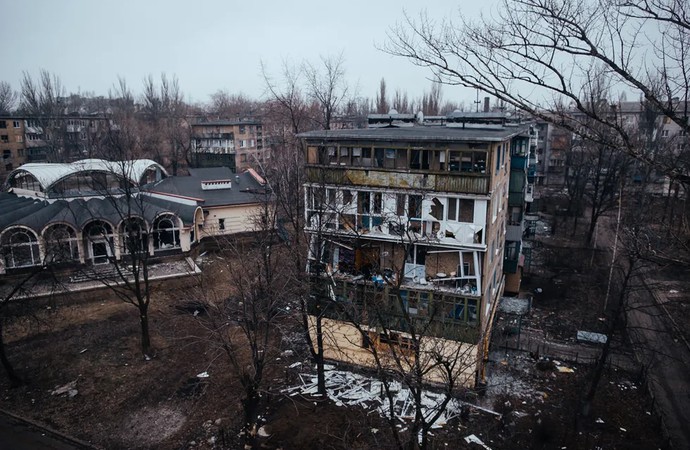
One idea that you’ve been talking about for many years is the need to attract women to the peace process. Why do you see this as important? And how do women’s perspectives differ from those of men?
The simplest explanation is about socialisation and the different experiences that people carry with them. For example, there are no provisions for women’s hygiene needs at checkpoints, as if women stop having periods in wartime. If women were involved in decision-making, issues like this would immediately disappear. When we discuss peace with other women, we talk about medical issues and education, whereas when we talk about security with men, it’s all about arms and fighting. These are the two perspectives that we bring to the resolution of the conflict. And if we are to introduce some balance into the needs of the various factions, we need to include a “women’s” perspective at the conference table.
Women, of course, face a load of both challenges and opportunities working within the conflict. In my first two years in my job, I travelled around with a male friend, but then I realised that it was calmer and safer to work alone. He was just an extra headache: they made him undress at every checkpoint and then check for any sign of weapons on him and so on. They also kept asking him: “Why didn’t you serve in the army?” When you get into a difficult situation, with aggressive talk, they’ll yell at me, but if they engage a male colleague it always ends in a fight. Women can even pass through ordinary checkpoints without even showing their ID. These are stereotypes, but they work in our favour, so we may as well exploit the situation.
How does the government view the idea of women’s involvement?
We now have gender mainstreaming, which was supported by the previous government – it in fact made a lot of political capital from it. And it has been taken up by the current one as well. On the one hand, it’s a handy means of communication, but on the other it raises a lot of issues. UN Resolution 1325 “Women, peace and security” covers four main areas, but they are presented here in a warped perspective.
When people ask us at seminars whether we know Resolution 1325 and we say “Yes, of course”. But when they ask what it’s about, the only response is, “that we need more women in the army”. But that article only makes up a sixteenth of the agenda in general, and it’s all we know. So while perhaps it’s good that they have engaged with the issue, it’s bad that the focus was so unbalanced. The idea behind this agenda was to broaden the concept of security from state security to human security, but they just added a bit about women to the state security section.
This agenda really needs to be expanded. Now things seem to be swinging a little in our direction, and we are now more often on the guest list. It used to be that people with alternative ideas were either ignored or excluded from the discussion. And we are now trying to bring new factors to bear on Resolution 1325.
Resolution 1325 is a framework for basic human needs. Satisfying these needs in terms of comfort and socio-economic guarantees inevitably entails conflict: conflicts arise out of an unequal share of power and the fight for it. Putting Resolution 1325 into practice is a way of trying to equalise conflicting factors in order to remove contradictions.
The opportunity to incite conflict in a prosperous society is limited. In a milieu where representative institutions have an important function, it’s not easy to create conditions where a society will break down. It’s essential to have democracy and the opportunity to take part in decision-making, where the interests of different groups are taken into account and people feel they have a role in the creation of a society’s future. The people won’t vote with their feet or resort to ideas of external support. Why should they if they can influence situations, whether at governmental, village or city level?
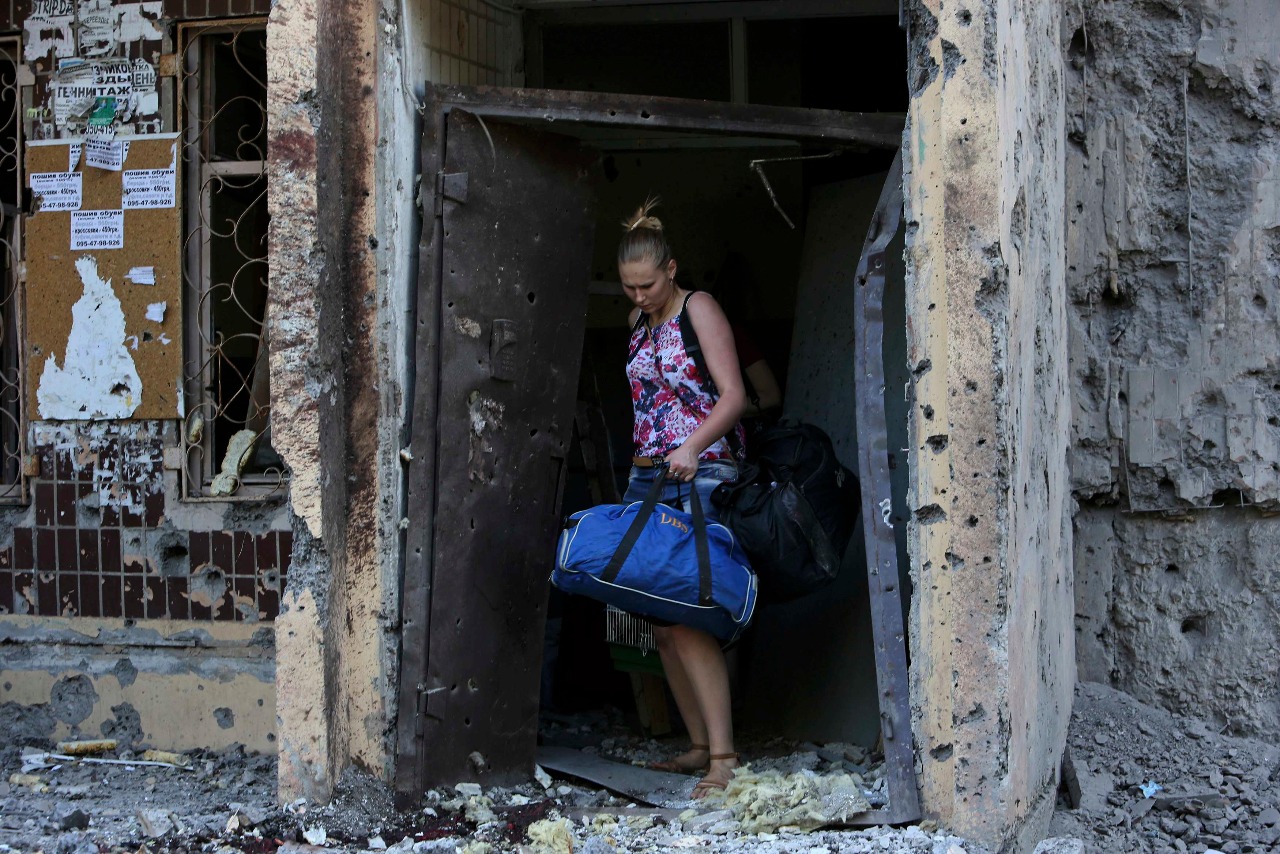
What can you tell us about the mood in the uncontrolled territories?
People have their own opinions on that, and I can’t talk about percentages: it’s not my thing. I try to guess people’s needs from what they say to me. Words are, for me. just an attempt to demonstrate these needs.
A couple of weeks ago, I read a post in a Luhansk Facebook group where a woman had received a Russian passport. She was so happy that she had finally managed to be part of a structure, a government, and felt a belonging and protection. I didn’t see it as a desire to distance herself from Ukraine, but rather a confirmation of the fact that she had spent five years trying to be protected by some state structure and hadn’t found any in either Ukraine or the self-proclaimed “Luhansk People’s Republic”. But now she had the hope of finally acquiring civic status, with a passport that would allow her to move around freely and receive social security payments.
The problem is that in terms of recognising different opinions in the official agenda, we have crossed out a large group of the population. And they feel excluded and demeaned and the uncertainty of their lives has given them an imposed feeling of guilt. They also experience humiliation at a structural-state level when they have to pass through checkpoints in order to receive their pensions. This is a series of humiliations which they finally want to be rid of. I feel that the desire of that woman to have a Russian passport had nothing to do with love for Russia, but being able to stop feeling she was a second-class citizen.
How do you see the future? Can there be a de-escalation of the conflict?
For the moment, everything is moving towards de-escalation. Even at the level of official Ukrainian rhetoric. I feel we’re having conversations now that we never had before, even amongst human rights defenders. We have met, discussed, but said neutral things aloud. We have been trying to create some kind of agenda for five years now, but have only just begun to formulate it. I’m not 100% behind every point of the petition, but I would simply like to be able to discuss them all.
Translated from Russian by OpenDemocracy
This interview with Nina Potarskaya took place under the auspices of the Memory Guides: Information Resources for Peaceful Conflict Transformation project at Berlin’s Centre for Independent Social Research with support from the German Ministry of Foreign Affairs, and is part of the Expanding Cooperation with Civil Society in the Eastern Partnership Countries and Russia programme.
